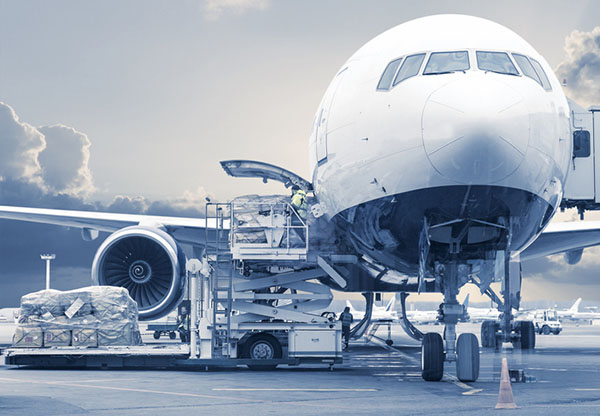AfA’s exec director shares insight on current state of air cargo
AfA is an organization representing more nearly 300 member companies dedicated to moving cargo throughout the supply chain, with business models varying from domestic to worldwide freight forwarding operations.

In this exclusive interview, Brandon Fried, executive director of the Washington, D.C.-based Airforwarders Association (AfA), brings readers up to date on air cago issues and concerns.
Logistics Management: Do you expect trade tensions with the U.S. .and foreign markets to continue into the remainder of this year?
Brandon Fried: Yes, and beyond. Once this cat is out of the bag, it’s tough to get him back in. Layer on domestic and international politics, and it going to be a long slow road to stability, whatever that is.
LM: So, how do shippers mitigate risk in the short and long term?
Fried: First, by not reacting to the daily headlines. Knee-jerk reactions are not only bad for business but not good for your health. Shippers need to be flexible and able to identify and keep all options open. Their freight forwarder is a good source of information in knowing which avenues are available in addressing their specific supply chain needs.
LM: What advances in airline technology are most impressive so far?
Fried: We are beginning to see some impressive technology in the sector that should have profound implications for the air cargo industry. As an example, American Airlines is now experimenting with tag-free baggage handling where optical recognition technology recognizes the passenger luggage, regardless of its labeling or similarity to others. If successful and fully implemented, think of its implications and uses within the air cargo system.
LM: Will the markets for cold chain commodities continue to grow?
Fried: I suspect so, and we are beginning to see notable increases in volumes where shippers need constant monitoring of shipments to avoid temperature diversions in transit. While the rate of expansion may have been slow, key markets are emerging, and there is still much room for growth.
LM: The Boeing setback shocked many shippers. Has the problem been properly addressed?
Fried: There is a lot we yet don’t know about the crashes as software, hardware, crew training, outside factors, all remain speculative at the moment. When the dust settles the 737, Max will doubtless return to service and be one of the safest aircraft in the skies given the intense scrutiny. Boeing and the Federal Aviation Administration can afford nothing less.
LM: Are we likely to see more shippers opting for air rather than ocean in certain trade lanes?
Fried: I don’t see this so much a trade lane question as a commodity question. As buyers of finished goods increasingly “want it now,” supply chains are rapidly evolving, and of course, the impacting the mode of shipping. However, as slow-steaming vessels become more prevalent in an effort by the maritime industry to save fuel, transit times will increase, and air cargo will likely benefit.
LM: Are you hopeful that the Trump Administration will rebuild ailing infrastructure at key cargo airports?
Fried: All airports are “cargo airports,” and yes, the federal government plays a crucial role in on-airport infrastructure. However, it is also becoming apparent that road infrastructure adjacent to airports is under the control of local governments is a significant issue too. In some cases, this is an even bigger issue.
LM: Which airports are in most need of this kind of attention?
Fried: It is difficult to draft a listing by order of importance, but the major gateways including JFK, Boston, Chicago, Los Angeles, and Seattle are right places to start. We are enthused by the recent announcement of a significant cargo infrastructure development at JFK, for instance, and look forward to monitoring its progress to assure that promises made are in fact, kept.
LM: Do shippers regard Amazon as a threat…or as a partner?
Fried: In the freight forwarding industry, today’s competitor can also be tomorrow’s partner, so we are eagerly waiting for Amazon’s future to unfold. However, Airforwarders Association members are investing in their futures through technology enhancements, increasing global footprints, and expanding service capabilities. It’s a big market, and many participants will do very well, regardless of Amazon’s plans.













